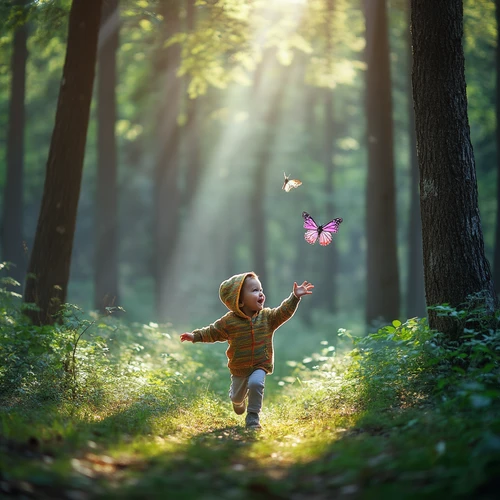Nature Play is a powerful, yet often overlooked, approach to child development that involves spontaneous, outdoor activities in natural settings. By stepping away from screens and structured toys, children tap into a rich sensory world that nurtures curiosity, creativity, and resilience.
Research shows that regular exposure to natural environments enhances cognitive flexibility—children become better at problem‑solving, adapting to change, and thinking outside the box. The unpredictability of forests, ponds, and gardens supplies a continuous stream of learning opportunities that indoor play often cannot match.
Beyond intellect, nature play supports physical health. Kids run, climb, and explore uneven ground, building core strength and coordination without the constraints of a gym. The fresh air boosts immune function while the natural lighting regulates circadian rhythms, improving overall well‑being.
For emotional growth, nature provides a calm yet stimulating backdrop that encourages mindfulness. Children learn to observe and respond to subtle environmental cues—identifying bird songs, feeling wind on skin, sensing the textures of bark. This heightened awareness promotes emotional regulation, empathy, and stress resilience.
Parents can facilitate nature play by:
- Designating safe outdoor spaces—clear, fenced areas free of hazards.
- Providing simple tools: leaf collectors, magnifying glasses, and reusable baskets.
- Planning flexible “wild” play sessions—no agenda, just exploration.
- Modeling curiosity: ask questions, discuss observations, and celebrate discoveries.
- Encouraging sensory play: allow children to touch, smell, and taste natural objects (within safety limits).
Key tips for a successful nature play routine:
- Start small. Begin with short, 15‑minute walks and gradually increase time.
- Safety first. Check for allergens, insects, and sharp objects.
- Build storytelling. Invite children to invent narratives about the places they explore.
- Connect with science. Use nature as a live classroom—count insects, track plant growth.
- Reflect together. End each session with a quick conversation about what was exciting or new.
Implementing routine nature play, even a few times a week, can produce lasting benefits. Children develop greater self‑confidence, improved focus, and healthier habits that carry into school and beyond.
In an era of digital overload, nature play reminds us that the best learning often occurs outdoors, where the only limits are our imagination.


